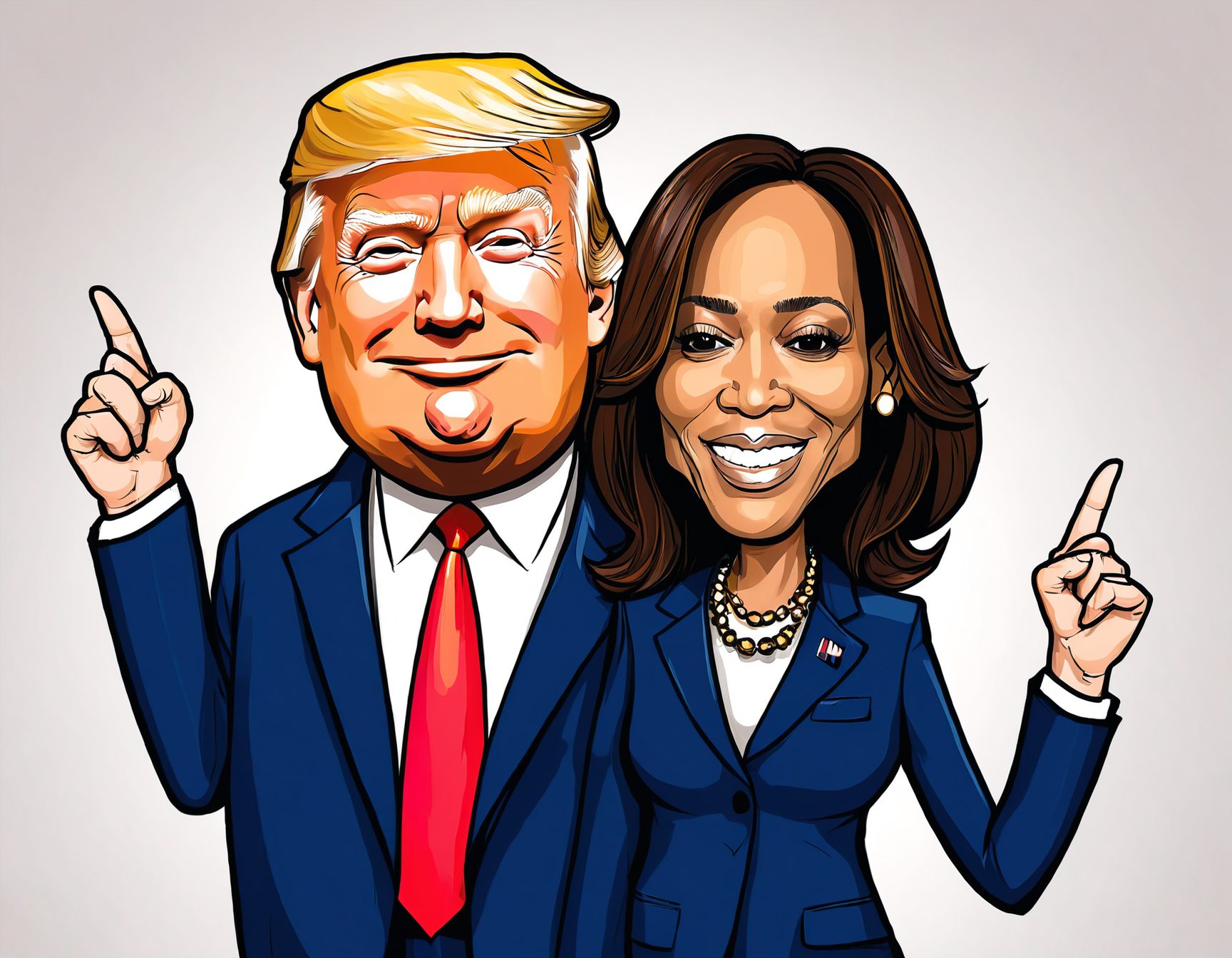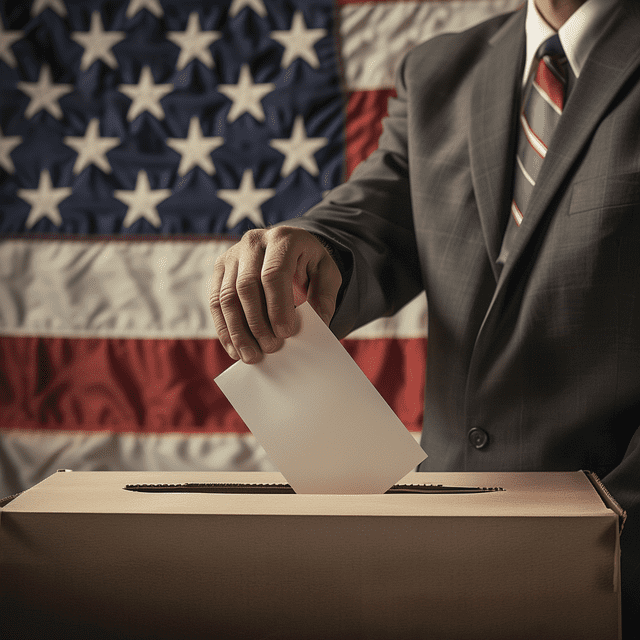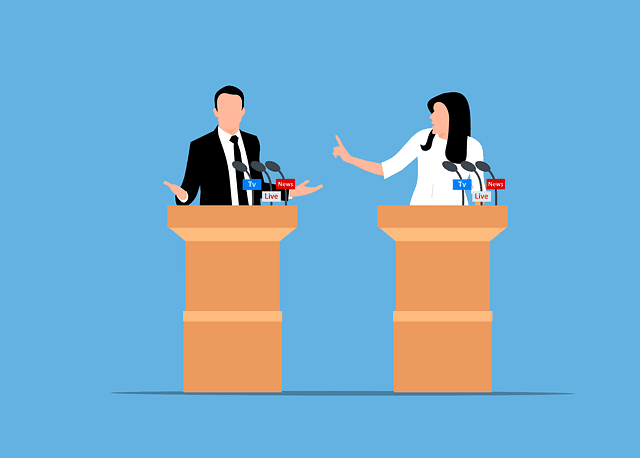

With the U.S. presidential election taking place today, and with Donald Trump slightly ahead of Kamala Harris in the betting at bet365 Sport, we're taking a look at some of the amazing stats for past and present U.S. presidential elections.
U.S. presidential elections have captivated audiences both nationally and globally, with stakes that transcend political ideologies and enter the realm of entertainment and even finance.
The intersection of politics and betting has created an engaging niche where election stats and betting odds can reveal trends, social shifts, and even predict outcomes.
From staggering turnout numbers to betting stats that reflect societal and economic tides, here’s an in-depth look at some incredible facts, figures, and betting stats from past U.S. presidential elections.
Always remember to gamble responsibly.
Check out bet365’s Safer Gambling page for more details.

Historically, voter turnout for the U.S. Presidential election has varied greatly, often reflecting social conditions and public sentiment. The 2020 election set a modern record for voter participation, with over 159 million Americans casting their votes—a turnout rate of 66.7%, the highest in over a century.
The increase in mail-in voting, partly due to the COVID-19 pandemic, enabled broader participation, breaking past records set in 1960, when John F. Kennedy and Richard Nixon competed in one of the most fiercely contested elections.
The record, however, was still shy of the all-time peak in 1876, when Rutherford B. Hayes and Samuel Tilden inspired an incredible turnout rate of 81.8%. This was a time when voting was seen as a civic duty for the select few who could vote—primarily white men.
The tension between Hayes and Tilden ultimately led to one of the closest elections in U.S. history, and though Hayes won the presidency, Tilden secured more of the popular vote.
Given the polarising nature of the 2024 US Presidential election campaign, it will be interesting to see whether the 2020 election turnout of 159 million Americans voting will be beaten in 2024.
Betting Angle: High voter turnout numbers often signify a closer, more competitive race, increasing betting interest. As a general trend, betting odds may tighten as turnout rises, reflecting heightened public engagement and unpredictable swings in candidate support.
Over the years, betting markets have witnessed some historic upsets in U.S. presidential elections, with underdog victories surprising both pundits and bettors.
Perhaps the most notable was in 1948, when Harry Truman defied all odds and polling predictions to win against Thomas Dewey. Truman’s campaign was underfunded and lacked enthusiasm from his party, yet he managed to pull off a stunning victory. Betting markets, which were limited but present, heavily favored Dewey, making Truman’s win one of the most famous upsets in election history.
Another unforgettable upset was in 2016 when Donald Trump defied pollsters, analysts, and betting markets to defeat Hillary Clinton. Trump’s odds of winning were as high as 5-to-1 the night before the U.S. presidential election.
Notably, many betting sites experienced a surge in bets placed on Trump in the days leading up to the election, causing odds to fluctuate wildly. His victory remains one of the biggest betting upsets in recent memory.
However, in 2024, Trump starts election day as the favourite with most bookmakers. Slightly ahead of Kamala Harris in the latest odds from bet365 Sport.

Betting Angle: The 2016 and 1948 U.S. presidential elections exemplify the high volatility in betting odds for elections, especially when candidates are perceived as long shots. In such situations, underdog bettors stand to make substantial profits if the odds favor the presumed front-runner too heavily.
Polling errors, often due to sampling or methodological issues, can have a significant impact on betting odds. The Dewey vs. Truman race is one of the most infamous cases of polling errors, where newspapers went as far as printing “Dewey Defeats Truman” before the final votes were counted.
In more recent elections, the 2020 election saw notable discrepancies in polling, especially in swing states, as Joe Biden’s lead was widely overstated by pollsters. This created an interesting dynamic in betting markets, where odds were frequently recalculated to reflect real-time developments.
In response to polling errors, bookmakers have adapted over time, using more sophisticated data analysis and accounting for a wider range of factors. Many betting sites also offer “hedging” options, where bettors can adjust their wagers as betting odds shift in response to new information, creating a fluid betting environment.
Betting Angle: Polling errors provide an opportunity for savvy bettors who can identify trends and deviations from betting lines set in response to polling data. For example, betting on the underdog when polling discrepancies emerge may yield favorable outcomes, as seen in several recent elections.
Open Account Offer:
Bet £10 Get £30 in Free Bets
Min Deposit: £5 – Expiry: 30 days – Min Odds: 1/5 (1.20)

Presidential debates have traditionally served as key moments in the election cycle, often swinging public opinion and, consequently, betting odds. One of the most impactful debates was in 1960, between John F. Kennedy and Richard Nixon.
It was the first televised debate in U.S. history, and Kennedy's charisma and poise on camera contrasted sharply with Nixon's less-polished appearance, swaying millions of viewers in Kennedy's favor. Nixon was the early betting favorite, but Kennedy’s strong debate performance helped shift public perception and betting odds in his favor.
Similarly, in the 2012 election, Mitt Romney gained significant ground in the betting markets after a strong performance in the first debate against Barack Obama. Although Obama eventually won the election, Romney’s performance exemplified the potential for debates to affect betting odds, albeit temporarily.
Betting Angle: Debates are high-stakes events for bettors, and a strong or poor debate showing can quickly adjust odds. Bettors who place wagers prior to debates may see significant returns if a candidate's performance boosts their standing.
Campaign spending has skyrocketed over the decades, with the 2020 election marking an astonishing $14 billion in total expenditures, nearly double the amount spent in 2016.
High-spending campaigns often correlate with betting odds, as well-funded candidates have broader reach and more resources for voter engagement.
However, a large budget does not guarantee victory. Despite Michael Bloomberg spending over $1 billion on his 2020 campaign, he failed to secure the Democratic nomination.
In another instance, Jeb Bush raised and spent substantial funds in his 2016 primary campaign but dropped out early after poor polling results.
Strangely though, 2024 seems to have bucked this trend with Kamala Harris spending considerably more on her campaign than Donald Trump, but it is Trump who has seen a surge in the polls.
Betting Angle: While campaign spending can influence betting odds, it's essential to remember that money doesn’t always equate to voter support. Bettors sometimes fall into the trap of overestimating the impact of campaign expenditures, providing sharp-eyed bettors an edge if they believe a less-funded candidate has a better chance.
With the advent of social media, real-time insights have revolutionized election betting. Social media’s influence was particularly noticeable in the 2008 election, where Barack Obama harnessed the power of platforms like Facebook to mobilize young voters and widen his appeal.
Social media’s role only expanded in the following years, and by 2020, platforms like Twitter and Facebook were central to campaign strategies, providing real-time insights that betting markets could leverage.
In 2024, Elon Musk has effectively used his X (Twitter) site as a mouthpiece to show support for Donald Trump, as well as posting non-positive stories about Trump's opponent. Indeed, much of Trump's recent surge correlates to Musk starting to use his platform, and his personal wealth, to try and influence voters to back the Republican candidate.
Betting Angle: Social media allows bettors to gauge public sentiment almost instantaneously, which can sometimes predict changes in betting odds faster than traditional news outlets. Bettors who monitor trends, memes, and viral posts have a unique window into public sentiment that can influence betting choices.
The Electoral College system, unique to the U.S., adds layers of complexity to election betting. Although the popular vote has increasingly favored Democratic candidates, the electoral vote has historically been less predictable, with “swing states” like Florida, Ohio, and Pennsylvania frequently determining the outcome.
In the 2000 election, George W. Bush won the presidency despite losing the popular vote, a scenario repeated by Donald Trump in 2016.
This discrepancy between the popular vote and the Electoral College often presents a nuanced betting challenge, as bettors must weigh a candidate’s appeal in pivotal states rather than relying solely on national trends.
These so-called “Battleground States” are generally the states that will decide the outcome of the election.
Betting Angle: Bettors who understand the Electoral College intricacies and state-level dynamics can strategically bet on specific outcomes rather than focusing on the popular vote. Predicting key state results can yield high returns, especially when certain states show early voting trends favoring an underdog.
The fusion of betting markets with U.S. presidential elections offers a fascinating intersection of politics, psychology, and probability. With each election, there are new factors—from demographic shifts to technological innovations—that impact betting dynamics.
Understanding past stats and betting trends provides invaluable insights for anyone interested in the complex world of election betting, where odds and outcomes are as unpredictable as the candidates themselves.
#AD Bonus Referrer Code is an affiliate of the brands we promote throughout this site. While we strive to maintain accuracy throughout our content, we do receive compensation for this promotion.
© 2025 BonusReferrerCode.com – All Rights Reserved
Worried about your gambling? When the fun stops – STOP!